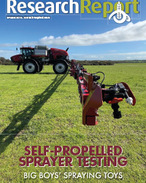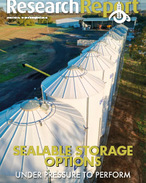This article is 4 years old. Images might not display.
The Southern NSW Drought Hub will be one of eight across Australia which will enable user-centred agricultural innovation and research under the Department of Agriculture, Water and the Environment's Future Drought Fund.
The project will receive $8 million in operational funding over four years and will be centred at the Agrisciences Research and Business Park at Charles Sturt in Wagga Wagga.
The Drought Hub will be a consortium of research providers - including Charles Sturt - and users who will work collaboratively to address local drought resilience research and innovation priorities, with the core aims of ensuring research is useful and accessible for primary producers and increasing opportunities to commercialise innovation.
The Drought Hub consortium will contribute an additional $11.9 million over the four years in financial and in-kind contributions.
The Hub's resources will be spread throughout southern NSW in a ‘hub-and-spoke' model which will facilitate drought resilience outcomes in water management, food security, farming systems, agribusiness, community building, regional development and the environment.
Charles Sturt University interim vice-chancellor, Professor John Germov, said the announcement was a fantastic result for the University and regional NSW.
"We're excited to establish a Drought Resilience Adoption and Innovation Hub for southern NSW which will bring together farmers, industry and researchers to work on programs which drive drought resilience," he said.
"As Australia's largest regional university with a long history of undertaking high quality research in agriculture that has an impact, we are well placed to provide leadership to ensure drought resilience knowledge is available in a way that's relevant to this region's climates, farming systems and conditions."
Minister for Agriculture, Drought and Emergency Management, David Littleproud made the announcement at Charles Sturt in Wagga Wagga earlier this week.
He said the Hub will be a shopfront for farmers to access innovative technologies that enable to be more prepared and drought resilient.
"The Hub will be a ‘hub and spoke' model with resources, including staff and programs spread throughout Southern New South Wales to capitalise on the members skills, assets and networks to generate drought resilience outcomes in areas such as water management, food security, farming systems, agribusiness, community building, regional development and environment," Littleproud said.























